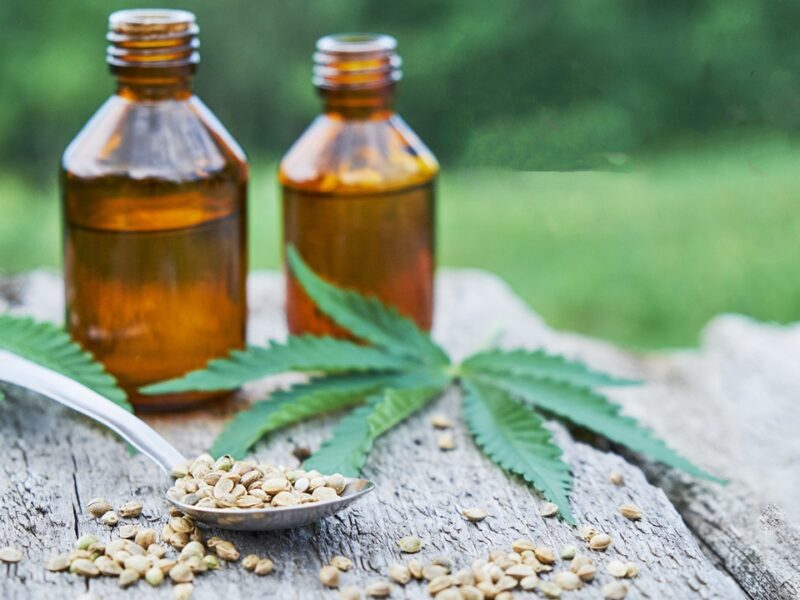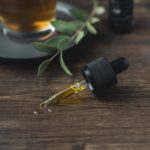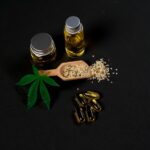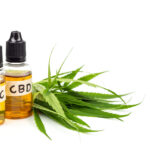Cannabidiol is often celebrated for its potential wellness benefits, but is CBD safe for your liver? Could this popular natural remedy pose a hidden risk, or are these concerns overblown?
While some studies suggest that high doses of CBD might affect liver enzymes, others highlight its safe use within recommended limits. The answer may not be as straightforward, and understanding the balance between CBD’s benefits and potential risks is essential for safe use.
In this guide, we’ll look into the current research, explore expert opinions, and consider what you should know before adding CBD to your wellness routine. Read on to find out what the science says and gain insight into how to make informed choices about your CBD consumption.
What Is The Current Research On Cannabidiol In the Liver?
Current research on cannabidiol’s effects on the liver is still evolving, with mixed results and ongoing studies. Some research suggests that high doses of CBD may impact liver enzymes, particularly alanine aminotransferase (ALT), which could indicate potential liver stress.
For example, a 2019 study on mice found elevated liver enzyme levels after they were administered large doses of CBD. However, these doses were much higher than what humans can typically consume (over 10,000 mg daily), raising questions about their relevance to regular use.
On the other hand, human studies have shown that CBD oil and other products generally have a good safety profile when used within recommended doses. Clinical trials, such as those involving Epidiolex (a Health Canada-approved CBD-based drug for epilepsy), have observed some liver enzyme elevation in a small percentage of users but found it manageable with regular monitoring.
Overall, while high doses of CBD could potentially strain the liver, moderate and responsible use appears to be well-tolerated in humans. More research is needed to understand the long-term impact fully, but current findings indicate that typical CBD usage is unlikely to cause significant liver damage.
How to Consume Cannabidiol Safely?
To maximize cannabidiol’s potential benefits while protecting liver health, it’s essential to approach its use with care. Here are steps to safely add CBD to your routine and recommended dosage practices.
1. Start with a Low Dosage
Begin with a low dose of around 10-20 mg per day. CBD affects everyone differently, so starting small helps you see how your body responds. If necessary, you can slowly increase the dosage by 5-10 mg each week, observing how it impacts you.
Keep in mind that some people may feel effects at lower doses, while others may require a bit more. Patience is key to finding the right amount for you.
2. Choose High-Quality, Third-Party Tested Brands
Opt for brands that offer third-party lab testing. This testing ensures that the product is free from contaminants, like pesticides or heavy metals, making it safer and reducing the risk of side effects.
Reputable brands like CBD North are transparent about lab results, so always check for a Certificate of Analysis (COA).
3. Understand Different CBD Forms and Potency
- CBD Oils and Tinctures: This CBD oil in Canada provides quick absorption under the tongue, which is ideal for those needing faster relief. Start with a few drops and increase as needed.
- Capsules & Gummies: Convenient for consistent dosing but may take longer since they go through digestion.
- Topicals: Best for localized relief, directly applied to sore muscles or joints.
4. Mind Possible Interactions
CBD can interact with medications, especially those processed by the liver. If you’re on medications (like blood thinners or antidepressants), consult with a healthcare provider to avoid any potential interactions.
5. Monitor for Side Effects
Although CBD is generally well-tolerated, some may experience side effects like mild fatigue, dry mouth, or appetite changes. If such side effects appear, try reducing the dosage or taking breaks.
6. Observe Timing & Routine
Some find CBD energizing and prefer it in the morning, while others use it at night for relaxation. Adjust based on your needs and consider splitting doses for more even effects.
7. Store CBD Correctly
To maintain CBD’s potency, store it in a cool, dry place away from sunlight. Proper storage can extend the product’s life and preserve its effectiveness.
Following these steps will help you enjoy CBD’s benefits while keeping liver risks to a minimum. They will allow you to build a safe and effective CBD routine that aligns with your health goals.
What You Should Know Before Buying Cannabidiol ?
Before incorporating cannabidiol into your wellness routine, it’s essential to understand a few key aspects to ensure safe and effective use:
1. Consult with a Healthcare Professional
Although CBD is generally well-tolerated, it’s crucial to speak with a healthcare provider before starting, especially if you take other medications. CBD may interact with certain medications, altering their effectiveness or leading to unintended side effects.
2. Understand the Types of CBD
CBD products come in different forms: full-spectrum (contains all cannabinoids, including trace THC), broad-spectrum (all cannabinoids except THC), and isolate (pure CBD only). Each type may produce slightly different effects, so choose one that aligns with your preferences and wellness goals.
3. Start with a Low Dose
If you’re new to CBD, begin with a low dose and gradually increase it based on how your body responds. Dosage can vary significantly depending on factors like body weight, metabolism, and the condition you want to address.
4. Set Realistic Expectations
CBD isn’t a miracle cure; it’s just a supplement. While many users report benefits like reduced anxiety, pain relief, and better sleep, results can vary, and effects may be subtle. Be patient and give your body time to adjust instead of constantly increasing the dosage.
Conclusion: Is Cannabidiol Safe For Your Liver?
While concerns about cannabidiol’s effects on the liver have emerged, current evidence suggests that moderate, responsible use is generally safe.
Studies show that very high doses may impact liver enzymes, but these doses far exceed what most consumers typically use. Human trials, particularly involving Health Canada-approved CBD products, indicate that any liver enzyme changes are manageable under medical supervision and rare within standard dosing ranges.
That said, consulting a healthcare professional before starting CBD, especially for those with pre-existing conditions or on other medications, is recommended. Choosing high-quality, third-party-tested products and sticking to recommended doses can further ensure safe use.
As research continues, we’ll gain a clearer picture of CBD’s long-term liver effects, but at present, CBD appears to be a safe supplement for most people when used responsibly.
Want to unlock greater wellness?
Listen to our friends over at the Wellness + Wisdom Podcast to unlock your best self with Drew Canole of Organifi:








 A Healthier You: How Everyday Foods and Supplements Can Transform Your Wellness Routine
A Healthier You: How Everyday Foods and Supplements Can Transform Your Wellness Routine